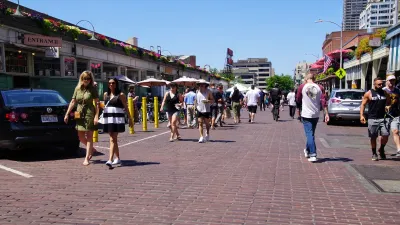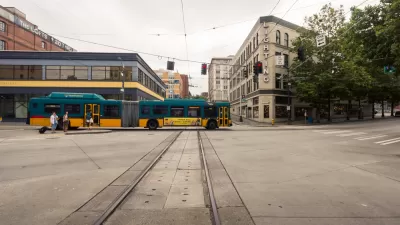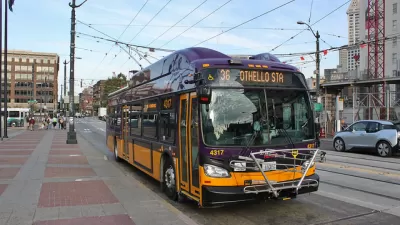According to one local writer, the city’s low rate of car ownership should encourage officials to support public transit and reduce parking minimums.

Over 20 percent of Seattle households do not own a car, according to a report from the Seattle Times. According to Seattle Bike Blog’s Tom Fucoloro, this signals that the city should be investing in transit and eliminating parking requirements that drive up the cost of housing.
Fucoloro notes that “The car-free households tend to be concentrated in dense neighborhoods with quality transit service like Capitol Hill, downtown and especially the U District and the International District.” But too many Seattle transit lines end service early in the day, and many trails lack nighttime lighting.
Fucoloro also suggests thinking outside the urban box and vastly expanding programs such as King County Metro’s Trailhead Direct, which helps people access outdoor recreation opportunities without a car. “Expanding rural transit across the state will not only provide service to people who live in those communities, but it will also help the increasing number of car-free residents access more places.”
FULL STORY: Balk: Car ownership keeps dropping in Seattle

Planetizen Federal Action Tracker
A weekly monitor of how Trump’s orders and actions are impacting planners and planning in America.

Maui's Vacation Rental Debate Turns Ugly
Verbal attacks, misinformation campaigns and fistfights plague a high-stakes debate to convert thousands of vacation rentals into long-term housing.

Restaurant Patios Were a Pandemic Win — Why Were They so Hard to Keep?
Social distancing requirements and changes in travel patterns prompted cities to pilot new uses for street and sidewalk space. Then it got complicated.

In California Battle of Housing vs. Environment, Housing Just Won
A new state law significantly limits the power of CEQA, an environmental review law that served as a powerful tool for blocking new development.

Boulder Eliminates Parking Minimums Citywide
Officials estimate the cost of building a single underground parking space at up to $100,000.

Orange County, Florida Adopts Largest US “Sprawl Repair” Code
The ‘Orange Code’ seeks to rectify decades of sprawl-inducing, car-oriented development.
Urban Design for Planners 1: Software Tools
This six-course series explores essential urban design concepts using open source software and equips planners with the tools they need to participate fully in the urban design process.
Planning for Universal Design
Learn the tools for implementing Universal Design in planning regulations.
Heyer Gruel & Associates PA
JM Goldson LLC
Custer County Colorado
City of Camden Redevelopment Agency
City of Astoria
Transportation Research & Education Center (TREC) at Portland State University
Jefferson Parish Government
Camden Redevelopment Agency
City of Claremont




























